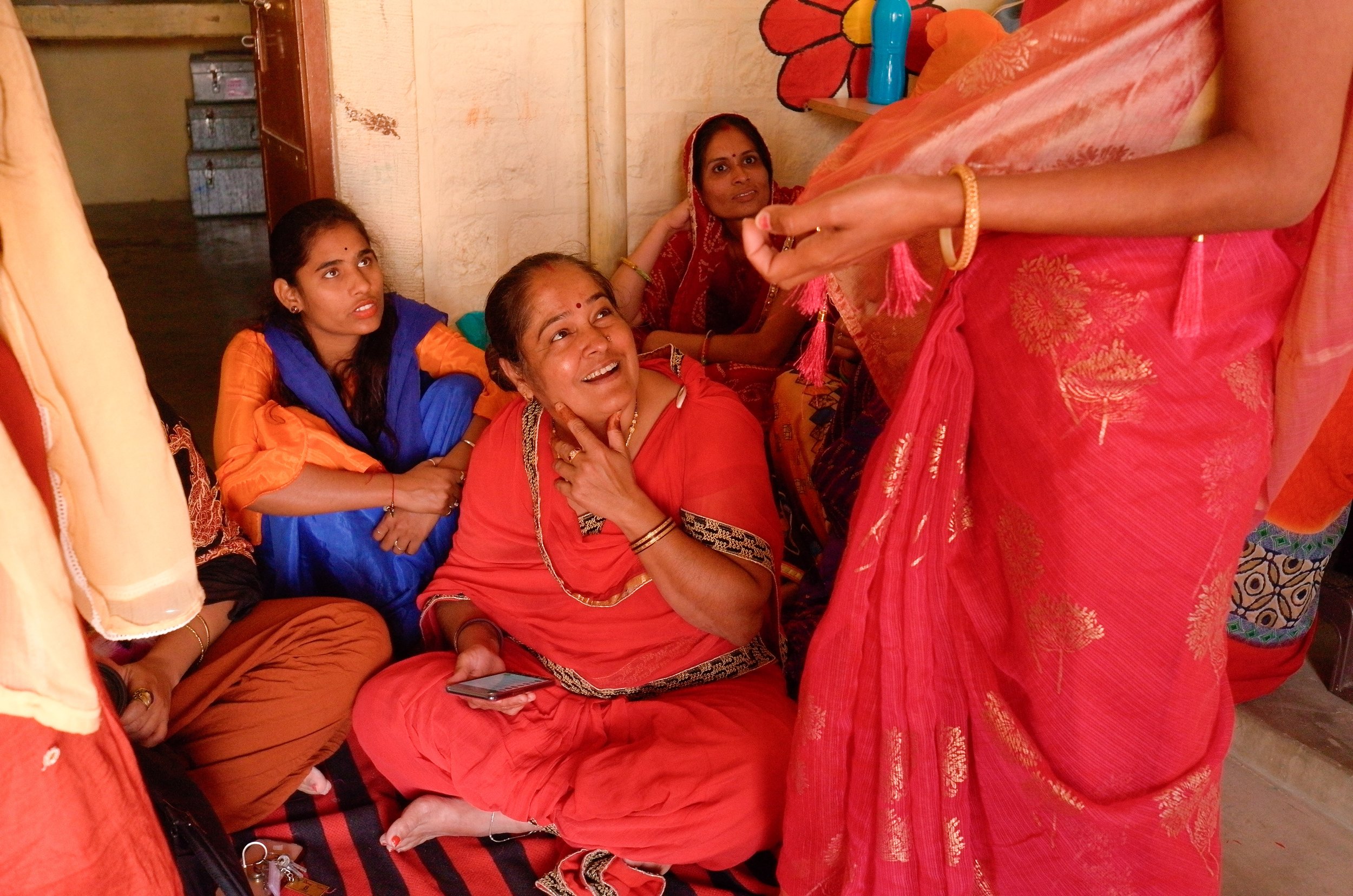Self-help Groups Supply More than Income for the Women at Sambhali
by Radhi Datla
A self-help (microfinance) group that started in October 2009 at Sambhali’s Empowerment Center in the village of Setrawa continues to bring great strength to the women of Sambhali. It started with each woman’s contribution of 50 rupees (60 cents) every month towards savings and financial growth. For most of the women, this meant forgoing some of their basic needs, but they believed in the power of their collective savings and in the community of their group.
Women set up small businesses taking loans from their self-help groups that they pay back in monthly installments. The self-help groups offer a hassle-free loan where there is not much paperwork, no penalties—unlike the banks and moneylenders, and a very low monthly interest rate of 1%. In over fifteen years of these groups, all the women have paid back their loans. Sometimes it may take a woman longer to repay her loan but those in her group know she will repay as she is able. Where a traditional moneylender brings fear, the self-help groups bring trust.
Women now own flour mills, vegetable stores, clothing stores, and dairy businesses. They also spend a large chunk of the funds to raise and take care of their families like paying their children’s school fees, paying for a wedding, or taking care of health care needs of the family. In addition, sometimes loans are used for emergencies such as medical needs.
With the Sambhali self-help group proving to be rewarding, more women joined, and self-help groups were formed at many of Sambhali’s Empowerment Centers. Currently, there are eight groups in Setrawa, seven in Jodhpur, and two in Jaisalmer. Each group of 15-20 women meets once a month where the women themselves decide who will get a loan that month. The monthly contribution to the self-help group by each woman now is Rs. 200 ($2.40) out of a monthly income that averages Rs. 7000-8000 ($83-$95). Women initially used to take a loan of Rs. 2000 to 3000 ($24-$36), but now the loan amount has risen to Rs. 25,000-30,000 ($300-$360).
Some women have taken loans from the self-help groups to buy two-wheelers. Pushpa Kanwar uses her two-wheeler to transport raw materials for her clothing store because renting vehicles can be expensive. Women have created employment for others too. Vandana Parihar used her loan to run a courier service.
By creating and sustaining self-help groups, the women at Sambhali have given themselves an opportunity for economic participation and a sense of self-worth. Sambhali’s self-help groups reflect resilience, camaraderie, sustainability, and shared prosperity.




